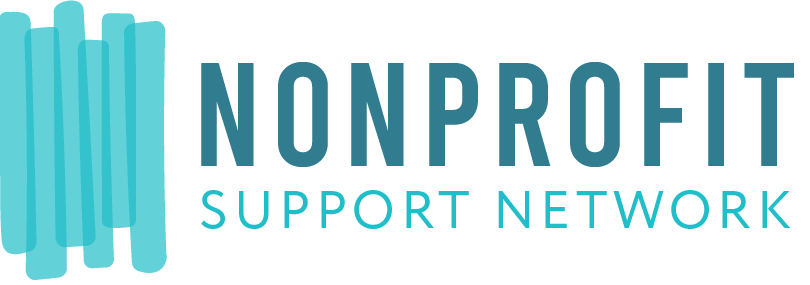Ethical Practices in Fundraising: A Guide for Nonprofit Leaders
Charitable donations are lifeblood of most nonprofits, and it is critical for organizations to take steps to ensure fundraising activities adhere to the highest ethical standards. An ethics-centered approach to fundraising doesn’t just prevent legal complications—it fosters trust with donors and ensures the sustainability of an organization’s mission. At Minnetrista Museum & Gardens, ethics guide every fundraising decision we make, which is why I’d like to share key principles for fundraisers that I have come to rely on throughout my career.
Why Ethics Matter in Fundraising
Ethical practices are important for all areas of nonprofit administration but are particularly critical in the realm of fundraising. At its core, fundraising is about building relationships and encouraging voluntary action. Nonprofit fundraising not only involves legal and tax considerations but also the moral responsibility of ensuring the proper use of these funds. Ethical missteps can weaken a fundraising program, eroding trust that diminishes donor confidence.
Several key documents inform ethical best practices for fundraisers across the sector. These include the AFP Donor Bill of Rights, CFRE International’s Statement of Ethical Principles, the AFP Code of Ethics, and IRS Publication 526. Each of these resources provides valuable guidelines for ensuring legal and moral compliance to ethical best practices. I recommend keeping them handy as references when faced with tough decisions or difficult conversations.
Principles for Ethical Fundraising
As I considered my own approach to ethical fundraising, I created a list of five key principles to help simplify the process for those who want to assess your own fundraising programs. that I believe can help guide those of you who want to assess your own fundraising programs.
Honesty: This is the foundation of all ethical fundraising practices. Honesty builds trust, and trust builds lasting relationships with your donors. When accepting a gift, ensure that you honor the donor’s intent. If there’s any doubt about whether you can follow through with their wishes, it’s better to reject the gift. Likewise, be transparent when communicating about your organization’s impact—be careful not to overstate your reach or results.
Transparency: Donors have the right to know information about the organizations they support. Be proactive in publishing important documents such as audits, annual reports, and IRS 990 forms. Disclose who your organization’s decision-makers are and make this information easily accessible to the public. At Minnetrista, we ensure our leadership and important financial documents are prominently displayed on our website.
Confidentiality: Respecting donor privacy is essential. Make it easy for donors to opt-out of communications and ensure that their personal information is handled securely. If your organization sells or trades donor information, be upfront about this practice and offer donors an easy way to opt-out. Additionally, make sure all staff who have access to donor data have reviewed and signed a data privacy policy.
Professionalism: Because it often involves meals and parties, lines between personal and professional relationships can blur in the fundraising world. While it’s imperative that fundraising and leadership staff form relationships with donors, staff should remain diligent about maintaining appropriate personal and professional boundaries.
Integrity: Nonprofit staff and volunteers should take precautions to avoid situations where personal gain could influence decision-making. Usually, simply removing oneself from any decision that might represent a conflict of interest is enough to ensure business is conducted with integrity. Organizations should also be cautious when considering hiring fundraising services that work on commission or contingency fee arrangements. These practices are so prone to manipulation and coercion that the world’s largest professional association for fundraisers, the Association of Fundraising Professionals, prohibits its members from engaging in work that is compensated based on percentages of gifts raised, finder’s fees, and other commission-style payments.
Moving Forward
To ensure your organization is on the right path, there are a few relatively simple things I suggest you consider. Every organization should have a Code of Ethics that is provided to all new staff and volunteers and regularly reviewed for any updates needed. If writing your own Code is daunting, look to professional associations for guidance. For instance, the American Alliance of Museums encourages member groups to use their Code of Ethics if needed.
Organizations should also consider adopting key policies like Gift Acceptance, Data Privacy/Non-Disclosure, and Conflict of Interest policies. These documents will protect both the organization and its donors, ensuring clarity in your operations. More information on these types of policies can be found at Board Source, an excellent resource for nonprofit best practices. Preparing these guiding documents in advance of any ethical issues arising will make tackling challenging decisions or scenarios that much easier.
When faced with an ethical dilemma, the most important thing an organization can do is to follow a clear process. First, identify the varying perspectives on each side of the issue. It can be helpful to gather resources and do research to better understand the topic at hand. This would include reviewing any policies the organization has already established. Ethical challenges should always be brought to the attention of the organization’s leadership, with Board members involved in serious cases. Finally, any decision that is made should be recorded and shared with all parties involved.
By abiding by these principles and ensuring a few guiding documents are available for reference, fundraisers can help ensure that they uphold their organization’s mission with integrity.
--
I wish to express special thanks to Jennifer Parks-Strack, MPA, CFRM, for her integral role in advancing financial transparency at Minnetrista.
Meet the Author: Lindsey Horan, MPA, CFRE
Lindsey is the Chief Operating Officer at Minnetrista Museum & Gardens.

